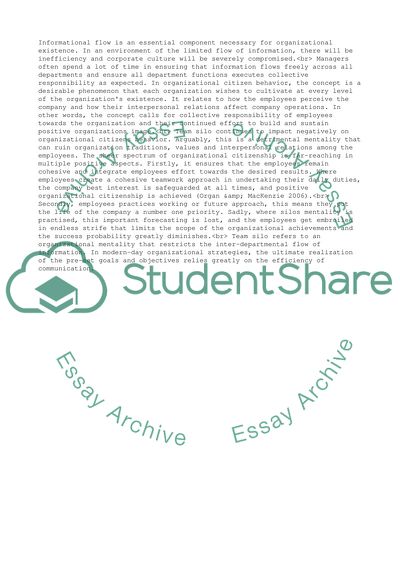Cite this document
(“Team Silos and there affects on Organizational Citizenship Behavior Essay”, n.d.)
Team Silos and there affects on Organizational Citizenship Behavior Essay. Retrieved from https://studentshare.org/business/1658194-team-silos-and-there-affects-on-organizational-citizenship-behavior
Team Silos and there affects on Organizational Citizenship Behavior Essay. Retrieved from https://studentshare.org/business/1658194-team-silos-and-there-affects-on-organizational-citizenship-behavior
(Team Silos and There Affects on Organizational Citizenship Behavior Essay)
Team Silos and There Affects on Organizational Citizenship Behavior Essay. https://studentshare.org/business/1658194-team-silos-and-there-affects-on-organizational-citizenship-behavior.
Team Silos and There Affects on Organizational Citizenship Behavior Essay. https://studentshare.org/business/1658194-team-silos-and-there-affects-on-organizational-citizenship-behavior.
“Team Silos and There Affects on Organizational Citizenship Behavior Essay”, n.d. https://studentshare.org/business/1658194-team-silos-and-there-affects-on-organizational-citizenship-behavior.


